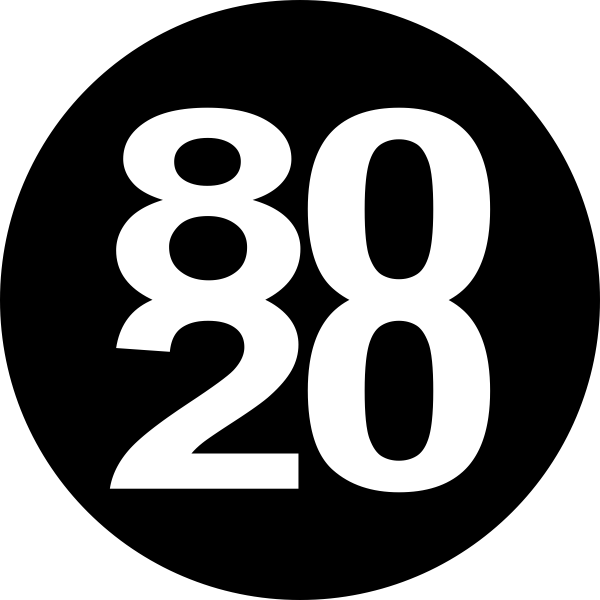80/20 Rule in
Learning Programming

Master Core Language Concepts and Build Small Real Projects for Better Skills
Programming can feel endless: new languages, frameworks, tools, and patterns appear constantly. But if you look at how working developers spend their time, you’ll notice that a relatively small set of concepts and practices underpins most of what they do. That’s the 80/20 Rule applied to learning programming: around 20% of topics and practice will give you about 80% of the capability you need for real projects.
Once you focus on that vital 20%, learning becomes less overwhelming and more directed toward building things that actually work.
Step 1: Master the Core 20% of Every Language
Each programming language has a foundation that shows up in most code you’ll write: variables, control flow, functions, data structures, input/output, and error handling.
- Focus first on syntax for variables, conditionals, loops, functions and basic data structures (arrays/lists, dictionaries/maps).
- Practice these until you can write small programs from memory, without constantly checking references.
- Leave advanced features (metaprogramming, deep generics, obscure operators) for later – they appear in far fewer problems.
Real-life example: A beginner in Python who became comfortable with loops, lists, dictionaries and functions could already automate simple tasks and solve many coding challenges, even without touching advanced libraries.
8020 move: For your chosen language, create a small checklist of core concepts and write tiny programs that use all of them repeatedly (e.g. input → process → output). Do this before diving into too many frameworks or tools.
Step 2: Learn the Few Data Structures and Patterns You’ll Use Everywhere
Across domains, a small group of data structures and problem patterns appears over and over again.
- Data structures: arrays/lists, dictionaries/maps, sets, and queues/stacks cover a large share of everyday tasks.
- Patterns: iterating over collections, filtering and transforming data, basic recursion, and simple state machines.
- For web/backend work: understanding HTTP, JSON, and database CRUD operations gives you leverage in many projects.
Real-life example: A developer who understood lists and dictionaries deeply could quickly adapt to many APIs and libraries, because most inputs and outputs were just nested combinations of those structures.
8020 move: In practice problems and projects, pay special attention to how data is structured and passed around. Aim to get very comfortable with a few core structures rather than superficially touching many.
Step 3: Make Practice Project-Driven, Not Just Exercise-Driven
Solving isolated problems is helpful, but building even small, real projects forces you to combine skills in realistic ways.
- Choose tiny projects that feel meaningful to you: a to‑do app, a personal website, a script to process files, a simple game.
- Each project should rely heavily on the core concepts you’re trying to solidify.
- As you progress, contribute small changes to open‑source projects to experience real‑world codebases.
Real-life example: Building a simple blog with authentication taught one learner more about web frameworks, routing, forms, and databases than dozens of disconnected tutorials did.
8020 move: For each new concept you study, ask, “What’s the smallest project where this would be genuinely useful?” Then build that instead of only reading documentation.
Step 4: Use a Few High-Quality Resources and Communities
The internet overflows with tutorials and courses, but only a fraction are clear, accurate and up to date. Similarly, a small number of communities and mentors can provide most of your guidance.
- Pick one or two solid books or courses instead of bouncing between many.
- Join a focused community (forum, Discord, local meetup) where experienced developers answer questions.
- Use Q&A platforms like Stack Overflow carefully to see how professionals think through problems.
Real-life example: A learner who committed to finishing a single, well‑reviewed course and participating regularly in its Discord learned faster than when they were sampling half a dozen courses at once.
8020 move: Choose your “short list” of learning resources – one main course, one reference site, one community – and ignore the rest until you’ve made good progress.
Step 5: Build Debugging and Problem-Solving Habits Early
A small set of debugging techniques can solve a large percentage of the issues you’ll face. Learning to debug is as important as learning syntax.
- Read error messages carefully and learn what they usually mean in your language.
- Use print/log statements or a debugger to inspect variables and program flow.
- Practice breaking problems into smaller pieces you can test individually.
Real-life example: Once a beginner stopped randomly changing code and instead started isolating issues with simple print statements and tests, their progress sped up dramatically. A few debugging habits solved most of their roadblocks.
8020 move: The next time you’re stuck, spend deliberate time reading the error and reproducing the issue in a smaller example instead of immediately copying code from the internet.
Learning Programming the 80/20 Way
You don’t need to master every language feature and framework to become useful as a programmer. By focusing on core concepts, common data structures, small real projects, a few trusted resources and solid debugging habits, you invest your energy where it pays off most.
The 80/20 Rule helps you accept that you’ll never know everything – and that’s fine. What matters is becoming very good at the small share of skills that show up in most real programming work.
